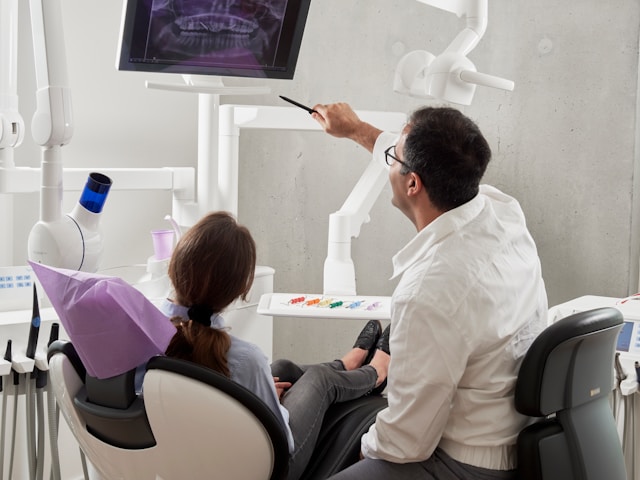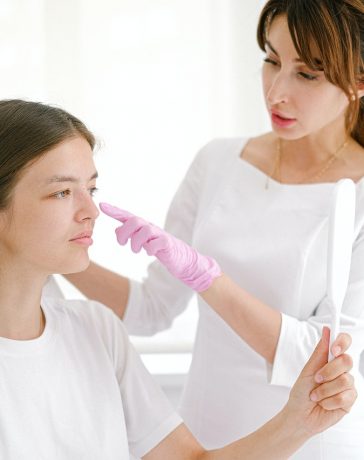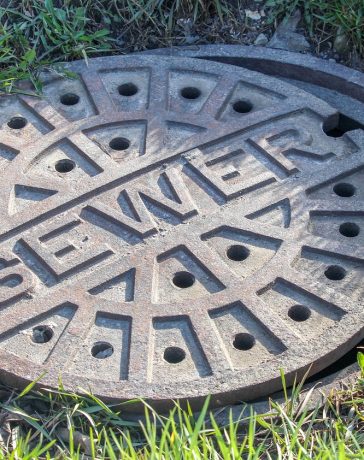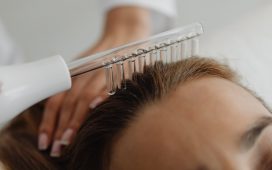Key Takeaways
- Adopting effective oral hygiene habits is essential for long-term dental health.
- Incorporate a balanced diet and regular dental check-ups for comprehensive care.
- Utilize natural remedies and products for enhanced dental wellness.
- Understand the role of mental wellbeing in maintaining good oral health.
Introduction to Mindful Oral Care
Proper dental care is essential not only for a beautiful smile but also for overall well-being. A mindful oral care routine ensures you pay attention to the small details that significantly impact your dental health. Dentists stress the importance of mindful oral care in fostering lasting dental health, whether living in a bustling city or a serene town like Port Orange, FL, dentist. Attention to dental care’s physical and mental aspects can significantly affect dental wellbeing.
Mindfulness, being present and engaged at the moment, can enhance your oral care routine by making you more aware of your habits and techniques. From brushing and flossing to making better dietary choices, a mindful approach can lead to healthier teeth and gums. Mindfulness can help you establish consistent and effective dental care habits, proving beneficial for your long-term health.

Daily Oral Hygiene Practices
Brushing Techniques and Tips
Brushing your teeth twice a day can prevent tooth decay and plaque buildup. A toothbrush with gentle bristles and fluoride toothpaste is essential to ensure adequate oral hygiene. Position your toothbrush at a 45-degree angle towards your gums and gently use circular movements to brush all areas of your teeth, including the front, back, and chewing surfaces.Brushing for at least two minutes ensures you give each tooth the attention it deserves.
The Significance of Flossing
- Flossing eliminates debris and plaque between teeth that a toothbrush cannot reach. Develop the routine of flossing once daily, ideally before going to sleep. By keeping these spaces clean, flossing helps prevent gum disease and cavities. Proper flossing involves using floss about 18 inches long.
- I was wrapping it around your fingers.
- She was gently sliding it between your teeth.
Move the floss up and down against the sides of each tooth to remove debris.
Using Mouthwash Effectively
Mouthwash can decrease mouth acid, clean difficult-to-reach spots, and help teeth remineralize. Search for a fluoride-containing mouthwash for enhanced protection. Use it after brushing and flossing to wash away any leftover debris. Swishing the mouthwash around your mouth for 30 seconds can help to dislodge particles and leave your breath fresh. It’s an excellent final step in your oral hygiene routine.
Diet and Dental Health
Foods That Promote Strong Teeth
A balanced diet benefits your body and teeth. Dairy products, leafy greens, and crunchy fruits and vegetables are excellent for dental health. They provide essential nutrients like calcium and stimulate saliva production, naturally cleansing the mouth. Consuming foods high in vitamin D, like fish and eggs, can enhance your body’s ability to absorb calcium, thus promoting stronger teeth.
Harmful Dietary Habits to Avoid
Consuming foods and drinks high in sugar and acidity can harm your enamel and result in tooth decay. Try to limit your intake of soda, candies, and sugary snacks. If you consume them, rinse your mouth with water afterward and avoid brushing immediately, as acids can soften enamel. Opt for healthier snacks like nuts, cheese, and fresh fruit, which are better for your teeth and overall health.
Regular Dental Check-ups
Frequency and Types of Dental Visits
Regular dental check-ups are critical in maintaining dental health. It would help to visit your dentist every six months for a cleaning and examination. Your dentist can detect problems at an early stage and offer treatments to stop them from getting worse. Regular appointments also enable professional cleanings to eliminate plaque and tartar accumulation that may not be removed by regular brushing and flossing.
What to Expect During a Dental Evaluation
Your dentist will check for cavities, gum disease, and other oral health problems during a dental visit. X-rays may be taken to see beneath the surface and detect issues that are not visible to the naked eye. Professional cleaning removes tartar that regular brushing and flossing miss, leaving your mouth fresh and healthy. Your dentist may also provide personalized advice on improving your oral care routine.
Natural Remedies and Products for Dental Care
Benefits of Using Natural Products
Natural dental care products often contain fewer chemicals and artificial ingredients, which can be gentler on your mouth and better for your overall health. They may include ingredients like coconut oil, baking soda, and essential oils with antibacterial properties. Natural products can be particularly beneficial for sensitive teeth and gums, as they are less harsh than conventional products.
Commonly Used Natural Remedies
Using coconut oil for oil pulling can decrease harmful bacteria and enhance oral health. Gargle a tablespoon of coconut oil in your mouth for 15-20 minutes, then dispose of it. Baking soda is a natural remedy that can assist in whitening teeth and balancing acidity in the mouth. Herbal rinses using clove and neem can benefit gum health by reducing inflammation and fighting bacterial infections.
When to Choose Natural Over Conventional Products
Natural products can be a good choice if you are sensitive to certain chemicals in conventional dental products or prefer to avoid synthetic ingredients. Be sure to select products with proven efficacy and discuss with your dentist if they suit your specific needs. Some natural products may lack fluoride, so it is essential to ensure you are getting this vital mineral from other sources or products.

Mental Health and Oral Care
Correlation Between Stress and Dental Issues
Stress and anxiety may result in grinding teeth, gum disease, and neglect of oral hygiene practices. Using relaxation techniques or therapy to manage stress can decrease the chances of these negative consequences occurring. Looking after your mental well-being is just as crucial as looking after your physical well-being. Continual stress can impact your immune system, increasing your vulnerability to oral infections.
Practices to Maintain Mental Wellbeing
Take part in activities that promote relaxation and diminish stress, such as yoga, meditation, or enjoying your preferred pastimes. Regular exercise and sticking to a healthy eating plan can also have positive effects on mental wellbeing.Finally, seek support from friends, family, or professionals if you’re struggling with stress or anxiety. Maintaining a positive mental outlook can boost your overall health and, in turn, benefit your dental health.
Technology in Dental Care
Innovative Tools and Apps for Better Oral Hygiene
Numerous dental care apps and intelligent tools can help you monitor and improve oral hygiene. Electric toothbrushes with timers and pressure sensors ensure you’re brushing correctly. Apps can remind you of dental appointments and track your brushing habits. Some advanced toothbrushes even sync with apps to provide personalized feedback and tips on your brushing technique.
Adapting to Advancements in Dental Care Technology
Keeping up with the most recent advancements in dental care technology can significantly enhance your oral health regimen. Embrace these innovations and consult your dentist about the best options. Whether it’s a new app or a hi-tech toothbrush, these tools can make maintaining dental health more accessible and practical. Automated reminders and digital guidance can help you stay consistent and diligent in your oral care practices.



































